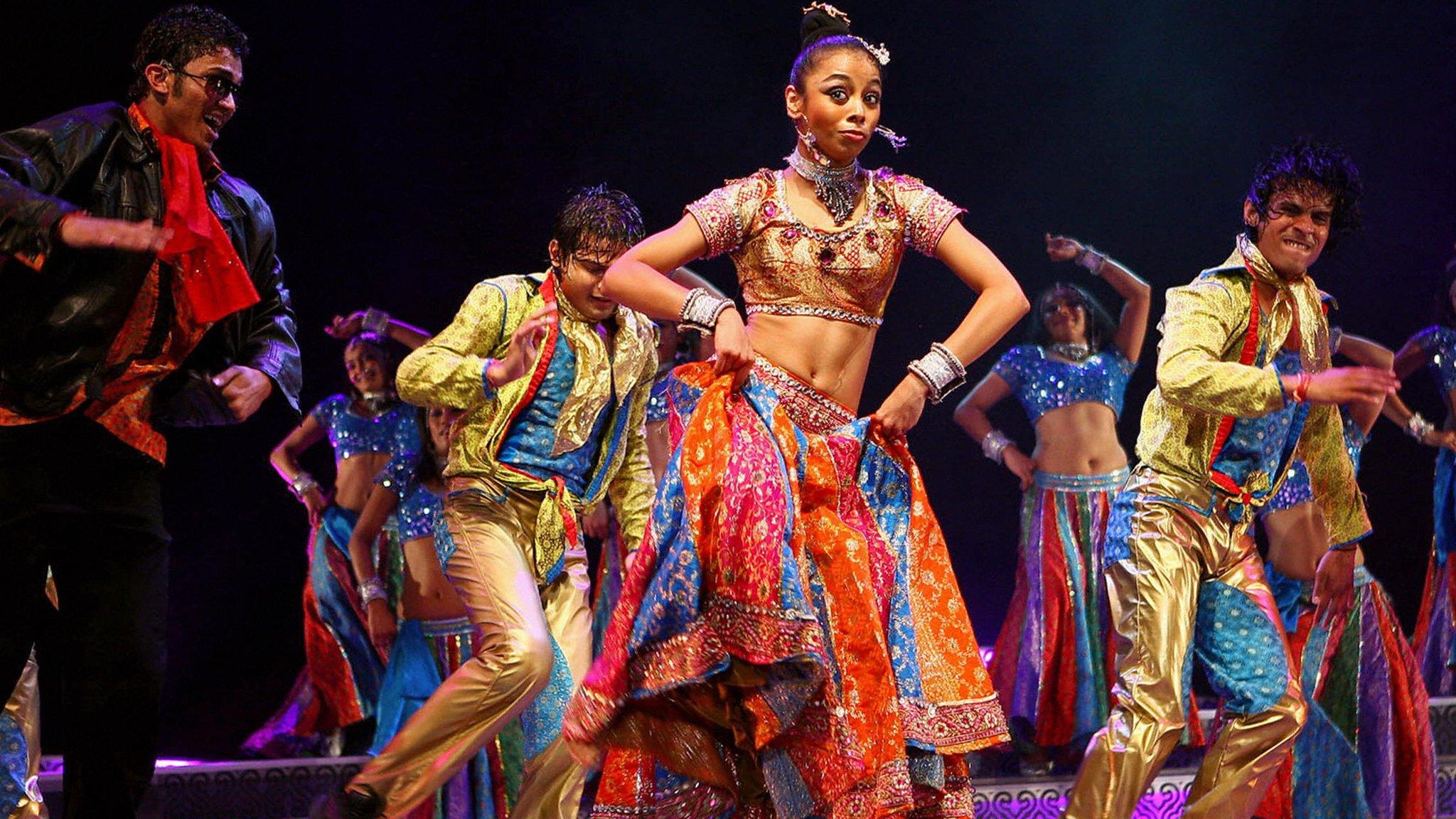Bollywood comes to Yorkshire - and helps the UK film industry strike Gold
- Published
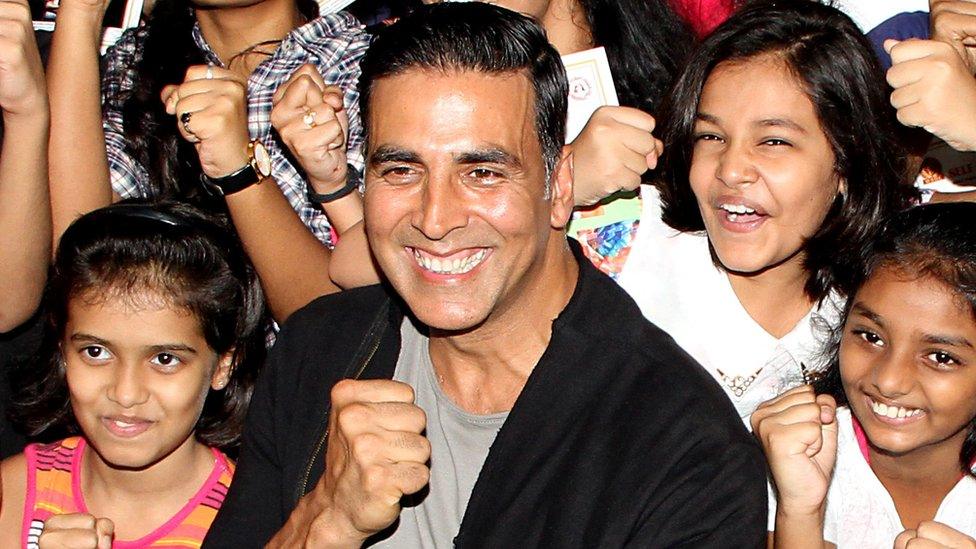
Akshay Kumar, one of Bollywood's biggest stars, has been filming in Britain
Bradford, Doncaster and Rotherham are providing the backdrop for a major Bollywood film starring one of India's biggest names - just one of the foreign productions contributing to Britain's film-making boom.
Anyone who happened to peer through the railings of Doncaster Racecourse last week would have been met with a surreal sight.
India's 1936 Olympic hockey team were greeted by a cheering crowd as they climbed off a vintage coach, before Nazi officers viciously beat a couple of their overenthusiastic fans.
Behind them, giant swastika banners were draped from the racecourse's historic Clock Tower Stand.
But this was just a film set, and Doncaster Racecourse was doubling as Berlin's 1936 Olympic Stadium. It will appear in Gold, an epic new Bollywood movie that tells the story of India's Olympic hockey players in 1936 and 1948.
One of the actors in Doncaster was Bollywood superstar Akshay Kumar, who is above the likes of Tom Hanks, Ryan Gosling and Ryan Reynolds on Forbes magazine's latest list, external of the world's best-paid actors.
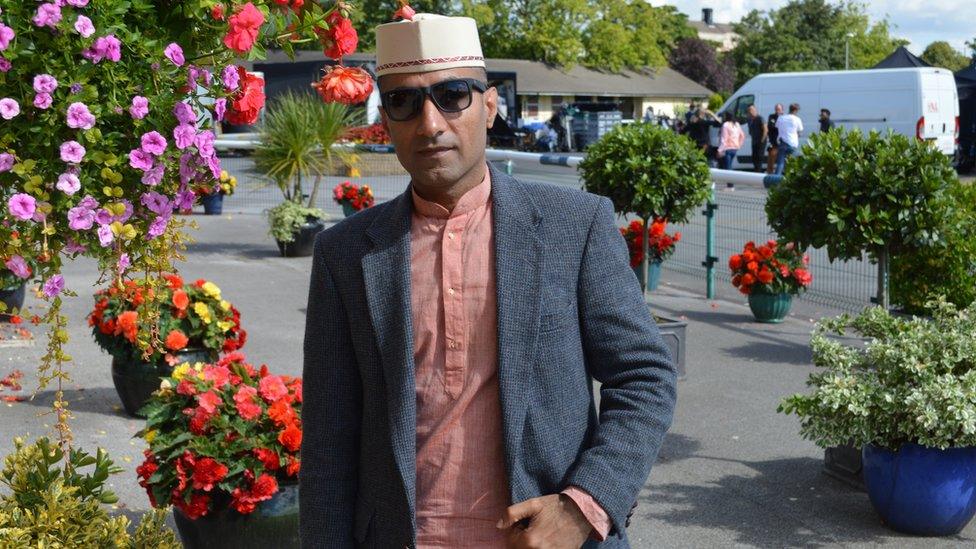
Suhail Al Belushi, from Leeds, is appearing in the film as an extra
"I rank him in the top five actors in Bollywood," says Suhail Al Belushi, from Leeds, who is one of more than 5,000 local extras in the film.
Mr Al Belushi has taken time out of his day job as a freelance interpreter to appear in the film after seeing Akshay Kumar walk into a hotel in Leeds.
"When I saw him I was shocked," he says. "I thought maybe there's a guy who looks like him. If it was India there would be crowds everywhere, heckling him, following him, wanting photos."
Among the other locations being used, Bradford's Midland Hotel, Harrogate's Old Swan Hotel and Leicester's Grand Hotel are all standing in for different parts of the Bombay Club in colonial Mumbai.
Rotherham FC's old Millmoor stadium doubles as an Indian hockey pitch. Dalton Mills in Keighley is a German army camp. The homes of Bradford Bulls, Leeds Rhinos and York City FC have all had a sprinkle of Bollywood stardust.
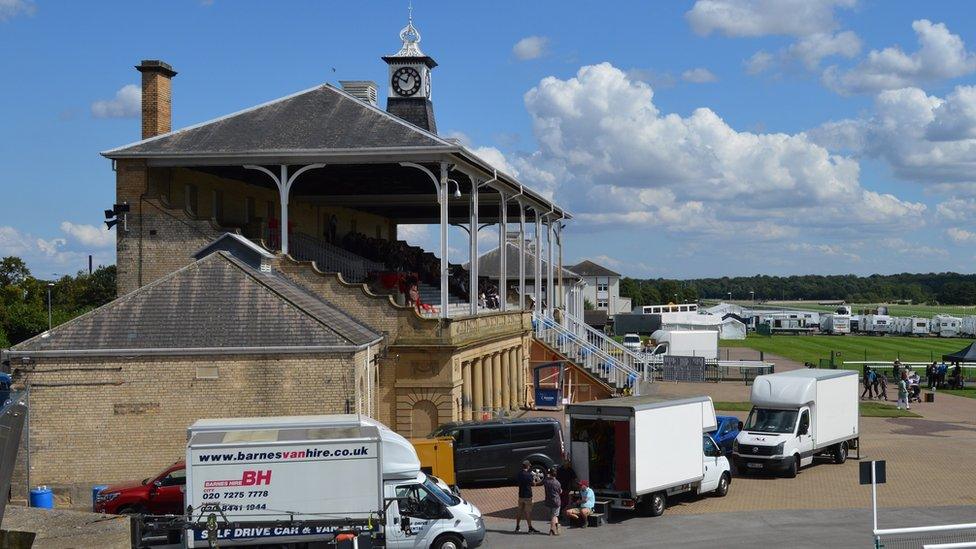
Doncaster Racecourse does a good impression of Berlin's 1936 Olympic Stadium
"I came here because I liked the locations," director Reema Kagti says.
"For this film, because it's a period film, I needed architecture that's been maintained. Architecture that existed before the '30s and has been maintained till date, and Yorkshire seems to have a lot of that. They really seem to respect their heritage and look after it."
The UK has become the destination of choice for many global film-makers, with talent from both Hollywood and Bollywood making it their home from home.
Movie production in the UK has grown 72% since 2014, the Office for National Statistics has reported.
Last year, £1.3bn was spent by foreign film-makers in Britain, according to the British Film Institute (BFI) - double the figure in 2012.
Most of that came from Hollywood blockbusters like Star Wars: The Last Jedi, Transformers: The Last Knight and The Mummy.
But there's a growing trend for Bollywood films to be shot in the UK too.

The 2007 film Salaam-e-Ishq was partly shot in Oxford
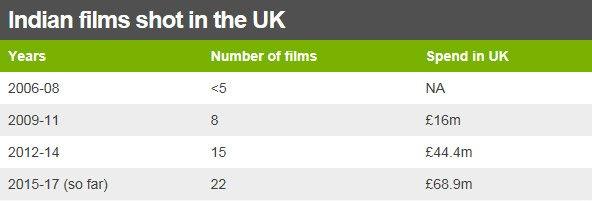
Source: BFI
There are a few reasons behind Britain's allure for overseas film-makers - tax breaks, the weak pound making it cheaper to film here, a readily available pool of skilled crew, plus the historic locations.
There are other attractions, too, for Reema Kagti. She has developed a taste for local beers. "If I do get any time out, I do go to a pub and drink some ale," she smiles.
Sue Bellarby has worked on 26 Bollywood film sets in the UK, including Gold, where she is unit manager.
"When I started in 2005 there was maybe one a year," she says. "Now we're getting five or six.
"There are three shooting in the north at the moment. There are another two coming in September/October."
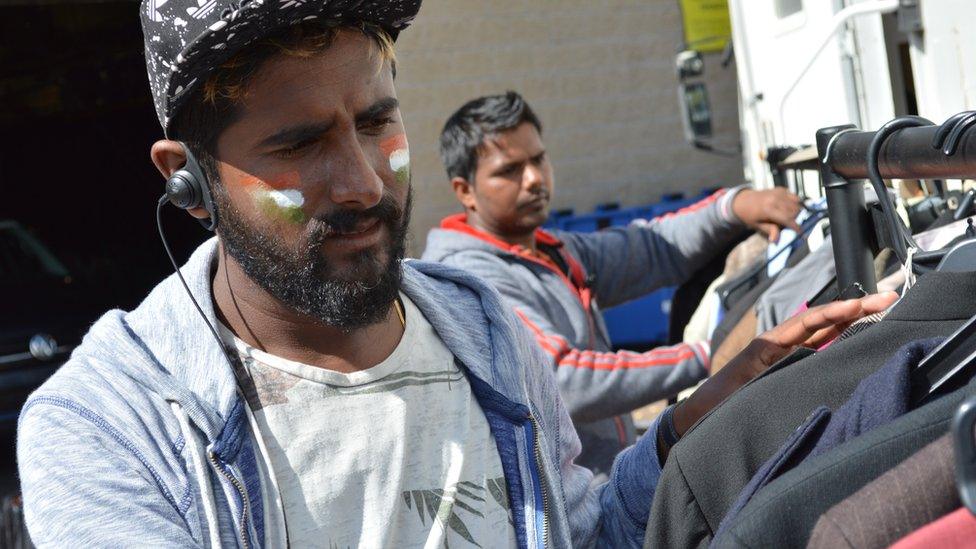
Members of the Gold costume department on location in Doncaster
In the past, Bollywood film-makers might have recreated British castles or stately homes in state-of-the-art studios in India - but now they are increasingly using the real thing, she says.
"They love the authenticity of shooting here. And I know they get some form of tax incentive. My experience of them is it's as cheap to film here as it is in India now, and they can actually film the locations for real."
And they are increasingly going outside London. Yorkshire and Humber had the fastest-growing film and TV industries in the country between 2009-15, according to Screen Yorkshire, external, an agency that has been crucial to the area's success.
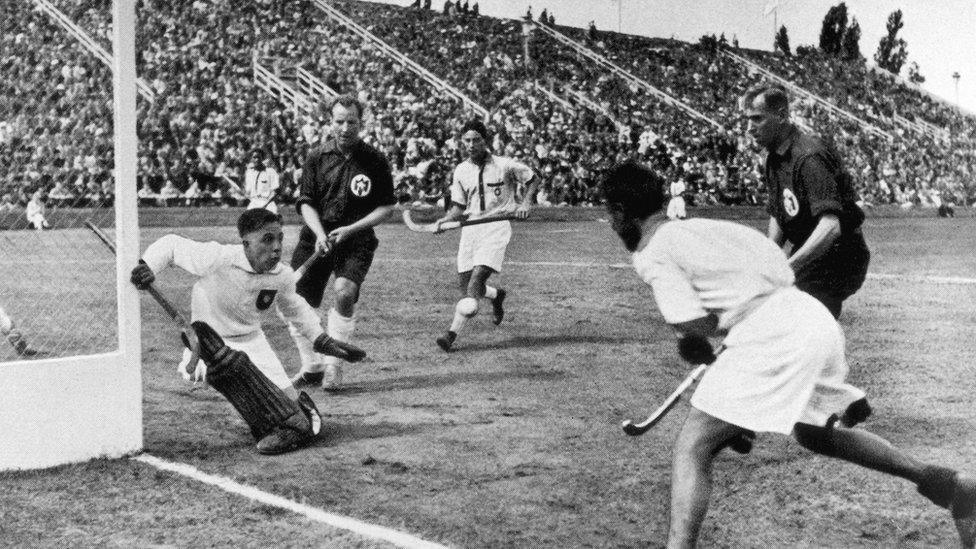
India beat Germany 8-1 in the 1936 Olympic hockey final
Gold's location manager Martin Walker says it is becoming more difficult and expensive to film in London. "The costs are becoming prohibitive," he says.
"Unit bases - spaces big enough to get all your big facilities and trucks in - are becoming fewer and fewer as they get developed on or sold out from underneath us, and some of us London-based location managers do worry about how viable London will be in the future as a place to shoot if you cannot physically service your shoot by having your vehicles close by."
Getting out of London has other advantages. "You've got your hotel costs which are half price, you've got great transport links, and you've actually got a population who still finds filming interesting and fun and fascinating and are helpful," he explains.
"Unfortunately London has gone the other way. 'Oh, filming again? Right, £50 before I move my car.'"
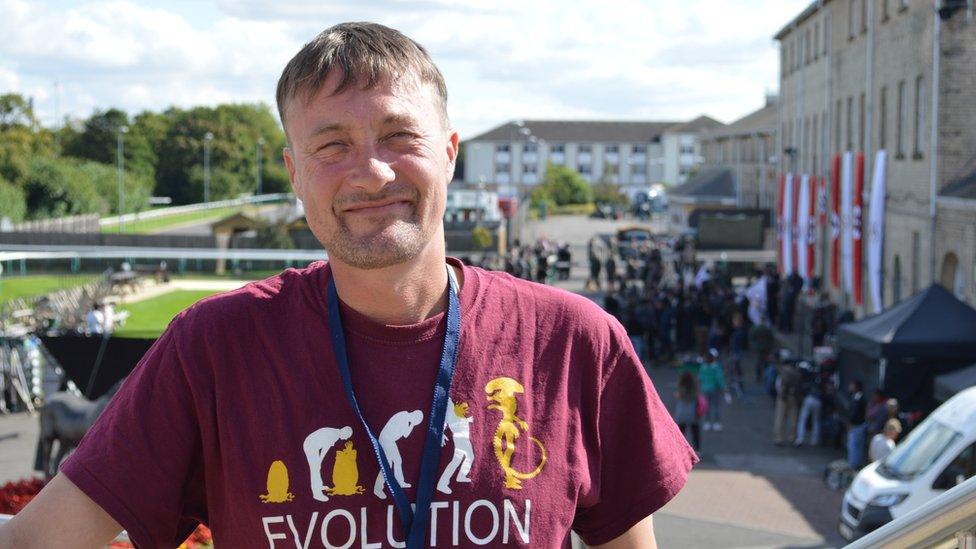
Gold location manager Martin Walker in front of the set in Doncaster
Kate Smith, a Manchester-based hair and make-up artist, adds: "It is definitely becoming a lot busier up north - the north west, Wales, Yorkshire.
"It used to be at one time that you'd have to live in London to be able to get the work, and you'd move the crew to wherever it was going. But now, the Isle of Man, Ireland, Scotland - it's all booming everywhere."
Bradford - which became the first Unesco City of Film in 2009 - has been the Gold production team's base as well as providing a number of filming locations.
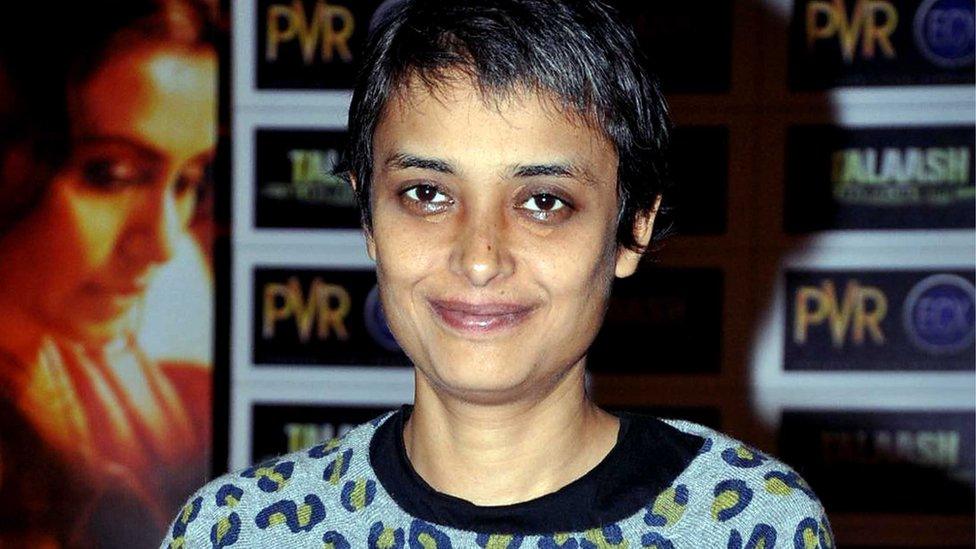
Gold is being directed by Reema Kagti
David Wilson, director of Bradford City of Film, says more than 100 films and TV shows have been shot in the city in the last 12 months. That's double the number in 2012, when he reopened the city's film office.
"It's given the city a renewed confidence," he says. "The phone in the film office rings off the walls some days. Every week there's a significant enquiry.
"Sometimes they don't come to fruition but more often than not they do, and we've now gained a reputation as a film-friendly city, and we're reaping the rewards of that."
The money spent on crew and suppliers - from trucks to catering - all makes its way into the local and national economy. And after release, locations often see an increase in tourism, Mr Wilson says.
"You've got the initial production phase, but that also leads to people thinking, do you know what, we might go there. We might go to Yorkshire. It looked brilliant in that film. And so it does dovetail very much into that whole tourism offer."
So perhaps, a year from now, when Gold is released, there could be another surreal sight at Doncaster Racecourse if Indian movie fans are climbing off coaches to see where the movie was shot.
Gold will be released on 15 August 2018.

Follow us on Facebook, external, on Twitter @BBCNewsEnts, external, or on Instagram at bbcnewsents, external. If you have a story suggestion email entertainment.news@bbc.co.uk, external.
- Published5 January 2017
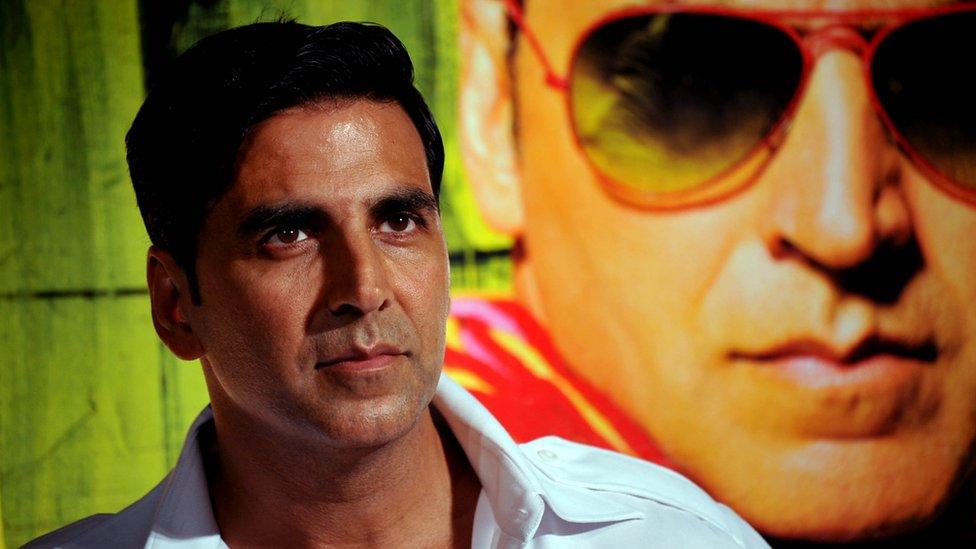
- Published28 June 2013
